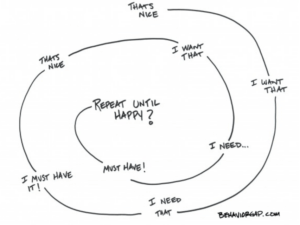Articles
Why Play Overtime?
10.04.2022
“GO HANNAH THE HAMMER!” My parents’ cheers faded into the background along with my coach’s instructions, a chorus of cicadas, and all the other sounds of a nine-year-old’s soccer game in Knoxville, Tennessee. My face flushed from both embarrassment and heat as I braced myself to block another kid steam-rolling down the field. Regardless of whether I succeeded or failed in my defensive attempts, I would hear my dad’s voice saying something like, “Good job Hannah the Hammer” as I ran towards my favorite part of the soccer game: orange slices.
Since you know that my favorite part of soccer was the post-game snacks, you may have gathered that the nickname “Hannah the Hammer” was slightly ironic. I loved the feeling of running off the field with my team, biting into cold fruit, drinking Gatorade or Capri Suns, and ripping off my sweaty shin guards. I could never understand why some of my friends wanted to continue playing after the game had ended, especially after we won.

I was reminded of my Hannah-the-Hammer days when a client recently told me, “I won the game – why would I play overtime?”
I couldn’t agree more.
This client hadn’t won the lottery or made a fortune off crypto. Instead, she simply defined what she wanted and once she achieved it, did the unthinkable – she stepped off the treadmill of more.
We all have a tendency to chase more. Whether it’s a certain return, a higher net worth, or more stuff, it’s easy to anchor onto a target that doesn’t truly matter to you. For example, there’s the person set on beating the S&P 500. How the S&P 500 performs and the risk it requires to get there has nothing to do with this person, or what they want out of life. Yet, they’re stuck on the treadmill of wanting to beat one particular index.
Another classic example is “keeping up with the Joneses.” Perhaps you have a well-running car, but your friends have more expensive cars or trucks. So you start with admiring their car/truck. Then you decide you want one too. Then you rationalize that you need it. Then you find yourself spending more to drive what the people around you drive.

There’s nothing wrong with making money, working longer, spending money, or having nice things. But, it’s worth acknowledging that the person who defines why they’re working/saving/investing has much more control over their life than the person stuck on the treadmill of chasing whatever most recently caught their attention.
The fields of Psychology and Personal Finance describe this as anchoring bias. Anchoring bias is when we latch onto one particular piece of information, whether it’s relevant to the decision we’re making or not.
You can avoid anchoring bias and the treadmill of more by defining your ‘why.’ Why are you running? At what point have you won the game so you can stop playing overtime?
I encourage everyone reading this, myself included, to dream big. Ask yourself what you really want and what it would take to get there. Ask us if you need help identifying and filling gaps between where you are today and where you want to go. And if nothing else, ask yourself the same question that my nine-year-old-Hannah-the-Hammer self wondered: why would you play overtime if you already won the game?